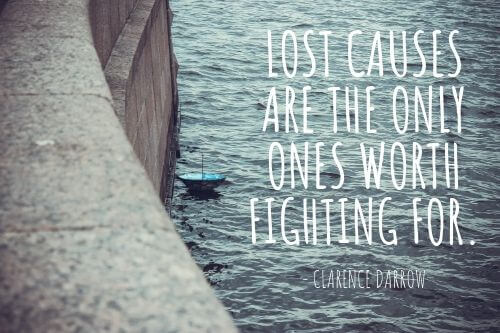
YouTube / iTunes / Spotify / Radio Public / Pocket Casts / Google Podcasts / Breaker / Overcast
Listen to ArtisanEnglish.jp posts & lesson intros here.
WotD: Lost cause
Before we can understand what a lost cause is, we need to know what a cause is.
A cause is a socially valuable principle or a reason for doing something.
For example, a cause could be providing free health care for those who cannot afford it, and the reason for doing this is that all people deserve to be healthy.
Now that I’ve gotten that out of the way, I can get to the main point of today’s post.
A lost cause is a person or thing with zero chance of success.
I don’t want to sound too negative here, but we are surrounded by lost causes wherever we go.
Drug addicts and people experiencing poverty will always be there, world peace is nothing but a pipe dream, and the Orix Buffaloes baseball team will never win the Japan Series. {As of 2022, I stand corrected. Miracles do happen!}
So, you see, striving to fix these things is a waste of time.
Some people are not mentally tough enough to resist drugs.
There have always been poor people and always will be.
The Orix Buffaloes?
Well, don’t get me started.
I’ve been a long-suffering fan for 20 years, and I still can’t explain to you why that is.
Luckily, I try hard not to be a cynical guy.
I try to be Mr. Positivity even though I sometimes don’t see sense in it.
That’s why I included a quote today in the picture.
“Lost causes are the only ones worth fighting for.” -Clarence Darrow
These things are not lost causes because they are worth believing in and fighting for.
Illegal drugs are a scourge on humanity and must be eliminated.
Poverty robs people and society in general of realizing their true potential.
The Orix Buffaloes? Hey, I’m an English teacher, don’t expect me to have an answer for everything.
Flesch-Kincaid Readability Test
This post is understandable by someone with at least a 7th-grade education (age 12).
On the Flesch-Kincaid reading-ease test, this post scores 76.
The easier a passage is to read, the higher the score on a scale of 0 – 100.

